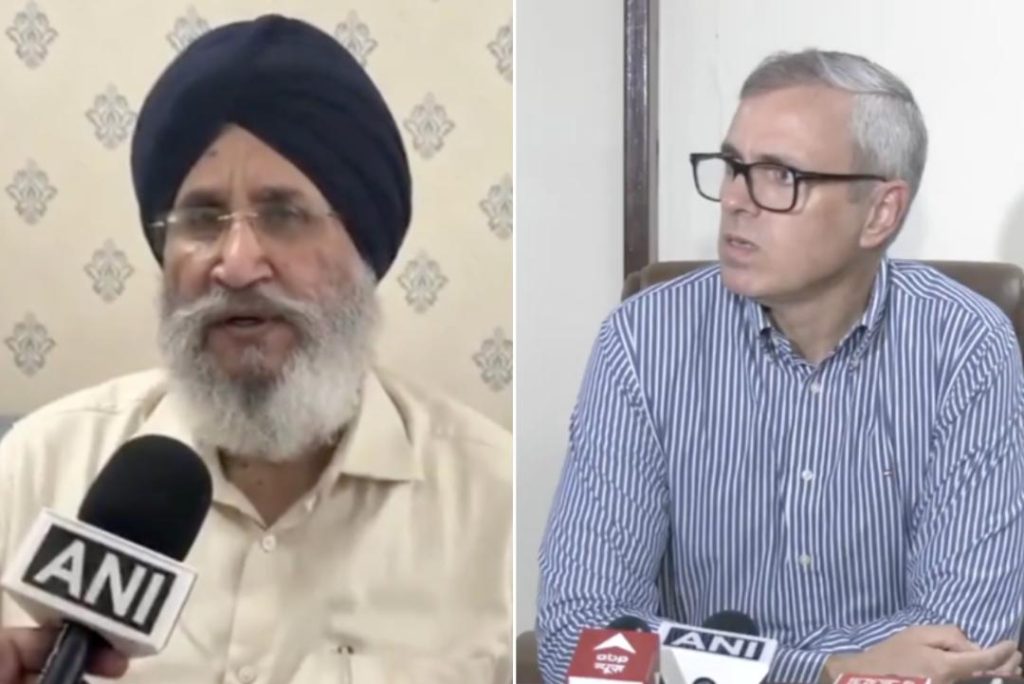
J&K CM’s Remark on Water Sharing Unreasonable: Akali Dal Leader
The recent statement made by Jammu and Kashmir Chief Minister, Omar Abdullah, has sparked controversy in the region. In an unexpected turn of events, Abdullah declared that his administration would not share any water with Punjab, a neighboring state that has long been dependent on the water resources of the river Ravi. The announcement has been met with strong opposition from the Shiromani Akali Dal (SAD), a prominent political party in Punjab, which has labeled Abdullah’s remark as “unreasonable”.
The controversy began when Omar Abdullah, during a recent public event, stated that his government would not share any water with Punjab, citing the state’s own water requirements and the need to prioritize its own development. The statement was met with widespread criticism and outrage from the people of Punjab, who have long relied on the water resources of the river Ravi to irrigate their farms and meet their daily needs.
In response to Abdullah’s statement, Shiromani Akali Dal leader, Daljit Singh Cheema, has come out strongly against the Jammu and Kashmir Chief Minister, calling his remark “unreasonable” and “unacceptable”. Cheema stated that his party did not expect Abdullah to comment on the issue of water sharing with Punjab, as river water distribution has historically been in favor of other states, such as Rajasthan, Haryana, and Delhi.
“We did not expect him to comment on Punjab, as river water distribution has earlier also been in favor of other states like Rajasthan, Haryana and Delhi,” Cheema said in a statement. “It is unreasonable on the part of the Jammu and Kashmir government to make such a statement and we strongly condemn it.”
Cheema’s comments were echoed by other leaders of the SAD, who have also expressed their outrage and disappointment at Abdullah’s statement. The party has demanded that the Jammu and Kashmir government reconsider its decision and work towards a more equitable distribution of water resources.
The controversy has also sparked a debate about the historical and cultural ties between the two states. Punjab and Jammu and Kashmir have long been connected through trade, culture, and family ties, and the people of both states have traditionally relied on each other for support and cooperation.
However, in recent years, tensions between the two states have grown, fueled by issues such as water sharing, border disputes, and political disagreements. The recent statement by Abdullah has only added to the tensions, and it remains to be seen how the controversy will be resolved.
In the meantime, the people of Punjab are left wondering why their water needs are being ignored by the Jammu and Kashmir government. The state is already facing severe water shortages, and any reduction in water supply would have devastating consequences for the state’s agricultural sector and its people.
The controversy has also raised questions about the role of the central government in resolving the issue. The Indian government has long been responsible for managing the country’s water resources, and it is unclear why the Jammu and Kashmir government would make such a statement without consulting with the central government or other stakeholders.
As the controversy continues to unfold, it is clear that the issue of water sharing between Punjab and Jammu and Kashmir is a complex and sensitive one. The two states have long been connected through trade, culture, and family ties, and any decision about water sharing must be made with the needs and concerns of both states in mind.
In conclusion, the recent statement by Jammu and Kashmir Chief Minister, Omar Abdullah, has sparked controversy and outrage in Punjab, a neighboring state that has long been dependent on the water resources of the river Ravi. The Shiromani Akali Dal has called the remark “unreasonable” and “unacceptable”, and demanded that the Jammu and Kashmir government reconsider its decision and work towards a more equitable distribution of water resources.
As the controversy continues to unfold, it is clear that the issue of water sharing between Punjab and Jammu and Kashmir is a complex and sensitive one that requires careful consideration and negotiation. The two states have long been connected through trade, culture, and family ties, and any decision about water sharing must be made with the needs and concerns of both states in mind.






